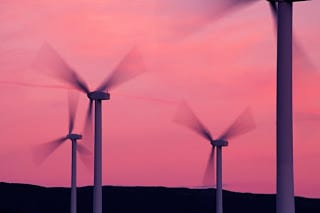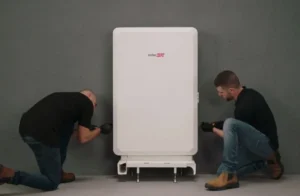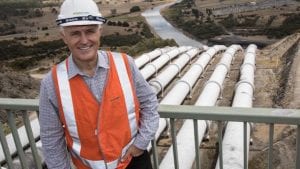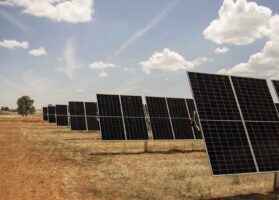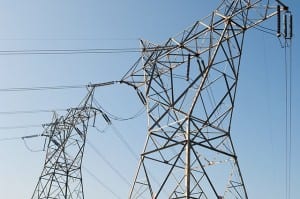The demonisation of wind turbines has continued at the latest Senate wind Inquiry, with the group of senators leading the charge comparing the wind industry to Big Tobacco, and raising the spectre of Pink Bats.
As reported here last week, the latest Senate wind inquiry – there have been 10 of them over the past five years – has been told of extraordinary damage to brain and physical function of humans, dogs and ewes.
The Inquiry has also focused on the testimony of Steven Cooper who, in his 20-page written submission, describes himself as an “acoustical and vibration engineer working in the areas of noise and vibration investigations for 37 years.”
Cooper, author of the Cape Bridgewater wind farm noise study released earlier this year, claims to have found a link between the symptoms of people near wind farms say they – and their animals – are developing, and the “infrasound” noise generated by operating turbines.
Channel 7’s Today Tonight program in Adelaide has given those claims a big airing. (Channel 7 is now to be run by Ryan Stokes, who is looking at opportunities to invest in the oil and gas industry. He takes over from former Woodside Petroleum CEO Don Voelte).
Of course, the claims of this study – The Australian‘s front-page coverage of which was described as “an exemplary case of… bad science and bad science reporting” – are contradicted by numerous studies and reports from both other acoustics groups and major government health organisations, all of which have so far found no scientifically proven evidence to support claims inaudible low-frequency infrasound produced by wind farms causes illness.
Cooper’s claims are further undermined by his own disclosure that some of his studies of wind farms in NSW, Victoria and South Australia have “been retained and received funding” from residents to undertake the work, as well as funding from renowned anti-wind group the Waubra Foundation.

Complicating matters for the wind industry, however, is that Cooper was actually commissioned by wind energy developer Pacific Hydro – after being nominated by local residents – to undertake the noise monitoring at its Cape Bridgewater Wind Farm “in an effort to identify the basis of complaints from residents that were related to ‘a compliant wind farm’.”
Pac Hydro is now reviewing the review.
Inspired by Cooper’s testimony – and despite his own acknowledgement that the Cape Bridgewater study was not scientific, not health-focused, and did not recommend or justify a change in wind planning regulations – Senators Leyonhelm, Madigan and Back have engaged in some high-level conspiracy theorisation.
“I’m minded of the tobacco company’s 50 years ago testifying to a committee somewhat similar like ours saying cigarettes do not cause lung cancer,” Senator David Leyonhjelm told the Inquiry.
“If I was in your shoes,” Lyonhjelm told Richards, “I would be concerned that in due course there would be a tort liability emerge out of this.”
Leyonhelm – a NSW LDP Senator, whose political views range from loosening gun control to the domestication of quolls – on Friday repeated his plan to give subsidies instead to hydro schemes that were built by state governments decades ago.
“The only losers would be the major wind-energy generators, which are eagerly waiting to build dozens of new wind farms in an effort to meet the target and get on the subsidy gravy train,” he wrote in the Australian Financial Review.
Meanwhile, Queensland LNP Senator Matthew Canavan was summoning the ghosts of green-schemes past, by comparing government support for wind energy to the subsidised “pink batts” insulation program, which was the subject of a Royal Commission after loose practices by some installers resulted in the deaths of four young men.
“Each turbine gets around $300,000 a year from the Federal government. That’s a lot of money. And I’m concerned that this could be Pink Batts in the air, if you like,” said Senator Canavan.

